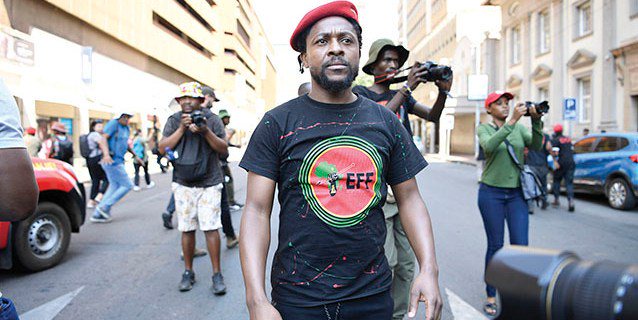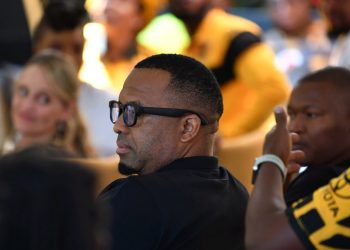As the Economic Freedom Fighters (EFF) prepare for their third National People’s Assembly (NPA) scheduled for December 12-15, lobbying among senior leaders for the deputy president position has intensified. While EFF leader Julius Malema is widely expected to be re-elected unopposed as party president, the contest for his second-in-command is shaping up to be highly competitive.
Notable figures vying for the deputy president position include former secretary-general Godrich Gardee, former spokespersons Mbuyiseni Ndlozi and Vuyani Pambo. The competition for this role has seen the emergence of two dominant factions within the party, with Gardee and Pambo seen as frontrunners.
The Candidates:
– Godrich Gardee: Supporters of Gardee highlight his experience, maturity, and previous tenure as secretary-general, positioning him as a “respectable” candidate who would complement Malema’s leadership. Gardee, a seasoned political figure, has been praised for his dedication to the party and is believed to have Malema’s respect. His supporters argue that the deputy president role requires someone who can provide stability and balance, rather than someone too ambitious, which they claim is a risk with Ndlozi.
– Vuyani Pambo: Pambo, representing the younger generation within the party, has gained significant traction in provinces like Gauteng and Mpumalanga. His current position as the head of the EFF presidency makes him a prominent figure among younger EFF members who believe it is time for generational change within the party’s leadership. Pambo’s backers argue that his youth, political articulation, and growing influence make him the right candidate to energize the party, though some leaders believe he is still too young to take on such a senior role at 35.
– Mbuyiseni Ndlozi: Once seen as a potential successor, Ndlozi’s star appears to be fading. Opponents argue that he is overly ambitious and could disrupt Malema’s leadership rather than support it. Despite his charismatic presence, his chances seem to be diminishing in favor of other candidates.
The Factional Battle:
Within the party, informal lobbying groups are actively promoting their preferred candidates. The dominant faction that previously supported Marshall Dlamini as Malema’s deputy now appears to be rallying behind Gardee and Pambo. Dlamini, the current secretary-general, was once considered a strong contender for the deputy role, but his prospects have weakened, and he may remain in his current position.
Generational Divide:
The race for the deputy president position has sparked debate within the party about the importance of experience versus youth. While the older generation favors Gardee, believing that his experience would bring stability and seniority to the leadership team, the younger faction insists that figures like Pambo represent the future of the EFF and should be given a chance to rise.
Those advocating for a younger leader like Pambo argue that the ANC’s chaotic leadership battles serve as a cautionary tale. They emphasize the importance of balancing generational change without causing division. Some within the EFF feel that promoting Pambo now may be premature and suggest that he should instead be groomed for national leadership in the future.
Leadership Debate:
Although many leaders are currently focused on policy discussions ahead of the NPA, the leadership debate is unavoidable. A high-ranking leader within the party noted that while there is a desire to elect senior, experienced leaders, the push from younger members for representation at the top is strong. The deputy president position remains a critical point of contention, and the outcome could shape the EFF’s direction for years to come.
The upcoming NPA will not only decide the party’s top six leaders but also serve as a pivotal moment for shaping EFF policy as it continues to grow its influence in South Africa’s political landscape. The balance between experience and youthful energy will be at the heart of this leadership contest.






















